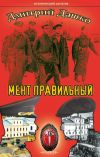
Автор книги: Gertcel Davydov
Жанр: Религия: прочее, Религия
Возрастные ограничения: +16
сообщить о неприемлемом содержимом
Текущая страница: 1 (всего у книги 13 страниц) [доступный отрывок для чтения: 3 страниц]
Akiva and Rachel
One of the greatest love stories of all time
Gertcel Davydov
Переводчик Joanna Dobson
© Gertcel Davydov, 2017
© Joanna Dobson, перевод, 2017
ISBN 978-5-4485-1896-6
Создано в интеллектуальной издательской системе Ridero
This book draws the reader’s attention to the story of high love that existed between Rabbi Akiva and Rachel as described in the Talmud. Thanks to his wife Rachel, Akiva went from being an illiterate shepherd to becoming one of the greatest wisemen in Jewish history.
This book tells the story of Akiva who, being born into a poor family, received no education. Akiva grew up to be a simple shepherd travelling from place to place doing various manual tasks. One day, destiny sends him a remarkable gift in the form of a meeting with a beautiful girl. The young, well-educated Rachel is the only daughter of Kalba Savua, the wealthiest man in Jerusalem. Akiva falls in love with her at first sight and the meeting changes his life to the core. Aware of the huge gap in age and social status that separates them, Akiva tries to put Rachel out of his mind and yet, he cannot help himself. Noticing the shepherd’s modesty and other fine qualities, Rachel agrees to become his wife on the condition that he study the wisdom of the Torah. Rachel’s father Kalba Savua is strongly opposed to their marriage. Rachel understands very well that it won’t be easy to transform an illiterate thirty-five year old man into a learned scholar but her heart and mind are firmly set. When Kalba Savua learns of his daughter’s betrothal, he drives her out of the house deprived of her inheritance.
This story took place approximately two thousand years ago and since then has been passed from generation to generation as an example of the idea of high love in a relationship between a man and a woman. As the plot develops, the book raises important themes like the necessity of prayer, the illusory nature of the world and the idea that there is no such thing as pure coincidence, everything is predetermined.
«All is foreseen, and freedom of choice is granted»
Rabbi Akiva (Mishna, Pirkei Avot, 3:15).
Chapter 1 Jerusalem! Jerusalem!
If I forget you, O Jerusalem
let my right hand wither!
Let my tongue cleave to the roof of my mouth,
if I do not remember you,
if I do not set Jerusalem
above my highest joy!
(Tehillim (Psalms), 137:5—6)
After the fall of Jerusalem in the year 383011
* According to Jewish Chronology; 70 a.d.
[Закрыть], when the Second Temple was burned down, the sages in Judea sought by all possible means to preserve centres of Torah study. Some opposed the Jewish rebellion believing that the opportunity to continue studying the Torah was more important than political independence. Nonetheless, determined individual units opposed the Roman army which led to disaster. The city was almost totally destroyed and the survivors found themselves in incredibly challenging conditions.
Despite the fact that the sun had made its return journey across the sky and was already setting on the horizon, a sweltering heat still gripped the city. Looking out across the outskirts of Jerusalem a traveller walked doggedly onwards determined to reach the market square before dark. He wandered for hours between narrow streets, each as similar as one drop of water to another. Desperate to reach the market by late afternoon, he decided to wait out the heat taking refuge in the shadow of a high tree. Having rested a while in the shade of the broad-crowned tree, the man noticed a shop a little way off where a merchant was selling spices. He got up and quickly made his way towards it.
An elderly Jew sat on a bench by the entrance.
«Peace to you22
* In Hebrew there is no equivalent to the formal version of «you» when addressing a person in the singular.
[Закрыть], sir», said the traveller.
«Peace to you,» said the grey-haired Jew.
«Does this road go to the market?»
«Yes, keep straight on and you’ll come to the market.»
The traveller asked permission to stand in the shade for a while and catch his breath. The merchant agreed willingly and offered the traveller some water. The stranger quickly drained the vessel offered to him.
«Thank you, sir.»
«It is always very hot in Jerusalem at this time of year. Would you like some more?»
«No, I have quenched my thirst, thank you.»
«You look tired. Have you come far?» asked the shop owner taking the pitcher from the traveller’s hands.
«Yes, it’s been a long journey.»
«Over the years, I have learned to tell at a glance, who is who. I knew as soon as I laid eyes on you that you aren’t from round here. Who are you looking for in Jerusalem?»
«I don’t know anyone here. I have come to Jerusalem from Galilee33
* Galilee is a historical region in the north of Israel.
[Закрыть] in search of work,» said the man. My name is Akiva ben Yosef44
* Akiva Ben Yosef – lit. «Akiva son of Joseph’.
[Закрыть]. I am a Ger55
* A Ger is a descendant of a non-Jew, converted to Judaism.
[Закрыть].
«My name is Shimon.» The elderly gentleman spoke his name with dignity. «I have been trading spices in Jerusalem for sixty years now.»
«I don’t suppose you would you have any work for me?» asked Akiva. You are a man of years and I am willing to do any kind of work, even hard physical work for a modest pay.»
«What work could I possibly offer you, a trader in a plundered, ruined city? Trade used to be good but now we thank God if we have enough money for food and drink. You must be hungry?»
«Yes, but I have a little money. I’ll get myself something to eat at the market».
«Save your money for later. You’ll need it, and anyway, the market will soon be closing and the traders will be in a hurry to get home. If you have no friends in Jerusalem, dine with my wife Dvora and I. It would be our pleasure.»
Akiva was taken back. Such a show of hospitality was quite unexpected.
«I can work for my supper. That would only be fair as you don’t know me at all.»
«There is no need for you to earn your supper. We would be honoured if you would share a meal with us.»
«What honour can there be in the presence of a man as simple as I, for you, the people of Jerusalem?» said Akiva, now even more surprised.
«If you dine at our house, you will give us the opportunity to emulate our forefather Abraham, at least in some small way. Abraham pitched his tent in the desert and invited travellers into his home. He took no money from them. His only request was that they read a blessing after the meal and thank the One God.»
«Is Abraham a relative of yours?»
«Abraham is a relative to all of us. He is the father of many nations. My wife and I always try to invite guests to our home following the example of our forefather Abraham, especially on major holidays.»
«I have never heard of him.» Akiva admitted.
«Hum,» thought Shimon shaking his head, «even here in Judea it appears one may still come across a person who hasn’t heard of Abraham.»
«Well, in that case, at least break bread with us. You can tell me about yourself and I will tell you a bit more about Abraham and Jerusalem,» the shop owner said. Shimon’s wife went out to the barn for food enough to prepare an extra portion for their guest. The men entered the home, took off their shoes and the shop owner offered Akiva some water so that he could wash after his long journey. Then Shimon washed and he and Akiva sat down at the table that had been prepared for them.
The guest took his place at the table next to the shop owner. Before starting to eat, Shimon spoke a blessing after which they began to dine. Akiva ate with great appetite but tried to restrain himself because he didn’t want to appear rude. He was enjoying a large piece of meat when his host asked, «Akiva, how do you usually earn a living?»
«I do all kinds of things. I have herded cattle, I chop wood or gather firewood in the forest to sell at market.»
Shimon’s question forced Akiva to drag his attention away from his plate of delicious food.
Shimon’s wife interrupted them, «Shimon, let our guest eat his dinner. Then you can talk.» The spice trader heeded his wife’s advice and let Akiva enjoy his food.
Akiva quickly emptied his plate and enthusiastically agreed to the offer of a second helping. Akiva’s manners slightly embarrassed the city dwellers but being hospitable hosts, they tried not to show it. When they had finished eating, Shimon asked Akiva to read a blessing with him but Akiva explained that he was illiterate and didn’t know any blessings. Shimon was shocked by Akiva’s admission but saying nothing more about it, he spoke a blessing whilst his wife set about clearing the table.
Shimon returned to the question he felt compelled to ask, «Didn’t you go to school as a boy? How is it that a grown man like you doesn’t know how to read or write?»
«I was sent out to work at a very young age and so even though I am now over thirty years old, I have never had the time or the means to study,» Akiva said sadly.
«Akiva, it won’t be easy for you in Jerusalem. Here people call the illiterate am-aamrets66
* Am-aarets, lit. ’people of the earth’, the ignorant, common people.
[Закрыть].»
«It is too late at my age to do anything about it.»
«The Holy Scriptures tells us that it is never too late. Remember that. You said you have no friends in Jerusalem, is that right?»
«Yes, that is right. I don’t know anyone here at all.»
«It’s late. Stay with us tonight and tomorrow morning, we’ll think about what you might be able to do here in Jerusalem.»
Akiva usually woke at dawn but on this occasion, he slept until lunchtime. He was finally woken by the scorching rays of the August sun. When he finally appeared, he found his hosts already waiting for him at the table.
«I haven’t slept like this for a long time. I am usually up at dawn and go to bed late at night. It must have been the long journey that made me sleep so late.»
«It is good that you slept well. We tried not to wake you, as you will need your strength.»
Shimon’s wife quickly laid the table and invited her husband and their guest to eat breakfast. Akiva ate with great enthusiasm as he had done the evening before. Hesitating, it occurred to him suddenly that he was taking advantage of the hospitality offered to him and that it would be quite wrong to devour everything on the table.
«What’s the matter Akiva?» the hostess asked, «Why have you stopped eating?»
«Thank you, but I am full already and I should set off. I have stayed much longer than I intended.»
«Don’t rush. Eat, drink, you will need your strength. Where do you plan to go Akiva?» Shimon asked.
«I will go to the market and ask the traders there whether anyone needs an extra pair of hands. I have to find work to pay for food and lodgings.»
«Kalba Savua might be employing workers.»
«Who is Kalbu Savua?»
«One of the three wealthiest men in Jerusalem» said Akiva’s host. I take spices to his family once a week and we have become good friends over the years. His house is always full of guests which is why he has the nickname Kalba Savua77
* Kalba Savua lit. ’the satiated dog’.
[Закрыть].
«Why the strange nickname?» asked Akiva surprised.
«Because even if a dog enters his house hungry, it will still leave satisfied. His door is always open to visitors and he too tries in this way to emulate our forefather Abraham.» Shimon paused for a moment and then with some sadness added,
«Since the failed revolt, the Romans have been taxing him heavily.»
«Did he take part in the uprising?» asked Akiva, again with some surprise.
«He is not only wealthy and respected, he is a faithful son of the homeland. He is one of the three most affluent residents of Jerusalem who helped the rebels.»
«Who were the other two?»
«Nakdimon ben Guryon and Ben Tsitsit Akeset. Their wealth is legendary. The three of them together could feed all Jerusalem.»
«Why then were the Romans successful in capturing Jerusalem and destroying the city?»
«Learning of the approach of the Roman army, Kalba Savua, Nakdimon Ben Guryon and Ben Tsitsit Akeset filled their warehouses with food, which in the case of a siege on the city would have lasted for twenty-one years. They were certain that the Romans would never have the forces or supplies to withstand a long siege and that they would retreat. Some of the residents of Judea didn’t want to follow their plan, desperate to fight with the Romans face-to-face. They set fire to the warehouses in the hope that, when the city was left without food and water, waiting would no longer be an option and the other citizens would follow them into battle. We all know how it ended.»
«I would consider it an honour to work for such a respected man. If he takes me on, I shall be very grateful to you Mr. Shimon.»
«There’s no need to thank me. Finish your breakfast and we’ll go and see Kalba Savua together. I am delivering some spices there today» said the trader, and then, as if reading the question in Akiva’s eyes, he said, «Jews must help each other and stick together particularly in times that are as hard for the people as these.»
Akiva was excited. If he was successful in getting work with the rich man, he would receive a good salary, a roof over his head and survive these difficult times.
Having secured the heavy spice sack over the donkey’s back they set out on their journey. The road they took passed by the market.
«If it doesn’t work out, I’ll come back here before sunset and look for work amongst the merchants. Maybe one of them will need my help,» said Akiva.
The old man stopped him and said:
«You can always come to the market and no doubt here, you’ll find bits of work, but being employed by Kalba Savua would give you much more certainty.»
«Yes, Mr. Shimon, you’re right.» Akiva agreed. «I am already thirty. I want to find a good job where I can work quietly up until my old age».
In the distance, beyond the city market, stood the ruins of numerous buildings and among them there remained a single surviving wall.
Catching his companion’s gaze fall on the city ruins, Shimon explained:
«This is Temple Mount. Here a Temple used to tower above the ground! Our ancestors revered this site and for a thousand years, they came here to pray.» The Romans looted and destroyed our Second Temple just six years after it was built on the 9th of Av88
* Month Av is the fifth month in the Hebrew calendar counting from the exodus from Egypt. It corresponds approximately to July-August.
[Закрыть] in the year 383099
* 2 August year 70 A.D..
[Закрыть]. That wasn’t the only sorrowful event that took place on this date. The First Temple, the Temple of King Solomon1010
* King Solomon (in Hebrew «Shlomo’) was the son of King David from Bat-Sheba, the third Jewish King. King Solomon is survived by his three books: «Shir a – shirim’ (Song of songs), «Mishlei’ (Proverbs of King Solomon) and «Kohelet’ (Ecclesiastes).
[Закрыть], built around a thousand years ago, was also destroyed on the 9th day of Av.
«You might think me stupid Mr. Shimon but I don’t believe in coincidences.»
«Akiva, what right have I to think you stupid? We are all equal before the blessed Almighty and each has a right to their own opinion of events that have taken place in the past. If He, the All-merciful, had wanted everyone to have the same view on events, He would have made it to be that way. But given that we are all different, then that is how it should be. I often wonder why these recent events and the destruction of the Temple of King Solomon took place on the same day of the year. Perhaps it is a sign of some kind?»
«I can’t answer that question for you, Mr. Shimon. Why do you call the First Temple the Temple of Solomon? Was it built by Solomon the Wise?»
«Yes, the First Temple was built by the great King Solomon, whom many call Solomon the Wise. He is rightly regarded as the wisest man that ever lived. Some people call him Solomon the Great because his reign is considered an era of the blossoming of the monarchy and Judaic power. He was famous for his fantastic wealth and most importantly, for his wisdom and fairness. When I look at what is happening in Jerusalem today, it reminds me of the story of Solomon’s ring. I find some comfort in it I suppose.»
«Really? What was special about his ring?»
«They say that the phrase ’this too shall pass’ was found etched into his ring. And in moments of great anger, King Solomon would look at the inscription and it helped him regain his peace of mind. Once though, there was a time when he couldn’t control himself, despite staring at the inscription. In a rage, he tore the ring from his finger and was about to throw it away, when at the very last moment, he noticed illuminated letters on the inside of the ring. He held the ring closer and read the inscription which said: ’and this too shall pass’. At that, Solomon burst into laughter and put the ring back on his finger.»
With those words, the merchant gave a heavy sigh.
«Perhaps these times which are so challenging for our people will also pass…»
«You are a wise man too Mr. Shimon. Even if Kalba Savua doesn’t hire me, I shall still be very grateful to you.»
«I do my best to study. I debate with the wisemen of the Torah, the students of the yeshivas1111
* Yeshiva – literally ’a sitting’; a higher Jewish institution of religious learning.
[Закрыть], I attend the synagogue, but I am a very long way from the wisdom of King Solomon. He was a great King, worthy of the honour of building the Temple, but I am a mere mortal. Akiva, should you ever wish to, you could always come to the synagogue with me.»
«Dear Mr. Shimon, forgive me, but I am not ready for that yet. And you know, so far in my life, my impression of religious people has not been particularly positive.»
«There’s no pressure! Everyone has to come to it of their own free will. Everyone has to find their own path to wisdom but let me know when you do feel ready.»
Akiva nodded silently and the rest of the journey they barely spoke a word, each lost in their own thoughts. It was almost midday and the heat of the sun beat down mercilessly, when finally Shimon said, «Well, we have arrived. This is the house of Kalba Savua.»
From the height at which Akiva and Shimon stood, they could see a huge house with a blooming garden and field with a river flowing through it.
* * *
The travellers passed through the gates of Kalba Savua’s estate and, taking hold of the spice bag, Shimon set off towards the huge house leaving Akiva in charge of his donkey. As he passed by the wooden well that stood in the middle of the yard, the merchant saw a young girl running towards him. She must have been about twenty years of age and she was extraordinarily beautiful. She warmly welcomed the guest offering him a pitcher of water drawn from the well. Shimon washed himself and having taken a drink of cold water, he entered the large house.
Relieving Shimon of the pitcher, the girl filled it again as she always did to water the donkey. Spotting the stranger, she walked up to him.
«Have a drink,» she said, holding the pitcher out towards the guest. «You and Mr. Shimon must have had a long journey.»
Akiva modestly took the pitcher from the girl’s hands looking carefully into her dark brown eyes. In that second, Akiva fell in love and the doors of his lonely heart flew open to greet her.
«Have as much as you want. I’ll feed and water Mr. Shimon’s donkey. The poor beast must be tormented with thirst. It looks tired,» the girl continued.
Filling another pitcher with water, she poured it into a deep trough and leading the donkey to water began stroking his fur whispering tenderly, «Drink little donkey, you have come a long way today and must be very tired.»
When the donkey had drained the trough, the girl took the pitcher from Akiva’s hands and returning it to its place by the well, walked back into the house.
Kalba Savua greeted his old friend with due honour and invited him to dine. Their meal together was spent discussing matters in Jerusalem and the future of Jews in their native land. Then as usual, Kalba Savua made to accompany his guest to the door, when Shimon said, «May I ask a favour of you?»
«If trade isn’t going very well and you need some money, I would be happy to help» Kalba Savua said without a moment’s hesitation. «You can pay me back when you are able, and if you can’t return the money, then we shall both think nothing of it. You are like an older brother to me.»
«Yesterday, someone came to my house and I invited him to share a meal with us. He has travelled from afar and is looking for work. I would like to help him but I can’t really offer him anything. I thought I’d ask you whether you can help.»
«Dear Shimon, you worried me. I thought something serious had happened. Bring him here. I’ll give him work, food and lodgings. I need assistants and managers who can run the farm. I can’t manage on my own anymore.»
«It’s true Kalba Savua, we aren’t getting any younger. We need people. But this man won’t cope with such a responsible position. I don’t think he’d be suitable to manage the farm. Do you have anything simpler?»
«Simpler… why? As it is you who has asked me, I’ll give your man good work.»
«Akiva can’t read or write. I think it would be difficult for him to work as your assistant.»
«How old is he?»
«He is nearly forty. He’s am-aarets but he comes across as a really good person, despite everything.»
«It’s rare to come across a man in Jerusalem these days who is illiterate at that age but he’s a faithful Jew? He attends the synagogue, knows the prayers and reads blessings after a meal?» Asked Kalba Savua.
«No, he says he has spent his whole life doing hard physical work and has never had the luxury or time to study.»
«Ok, well, I’ll ask one of my men to teach him the prayers…after he’s finished his work of course» said Kalba Savua laughing. «The head of livestock has increased. I need a good shepherd. Bring your Akiva here and my assistant Ezra will show him the property and livestock.»
«He is with me now waiting outside by the gates.»
«Then he may as well start work today» said Kalba Savua smiling.
«Thank you, Kalba Savua. You do so much for our community. Bless You!»
«I have no doubt that if you were able, you would do exactly the same.»
«I’m just a simple merchant, but you, Kalba Savua, are a respected man, a tzadik1212
* The word «tzadik» is derived from the word «tzedek», which in Hebrew means «justice»; a person who strives to live by the laws of the Torah and help their neighbour.
[Закрыть]. People are composing legends about you and no doubt in a thousand and even two thousand years from now, people will still speak of you as one of the richest men in all Jerusalem.»
Shimon found Akiva and told him the good news. Akiva thanked his patron warmly and set off with Ezra the farm manager, Kalba Savua’s assistant to get to know the farm.
Ezra showed Akiva the layout of the estate and on Kalba Savua’s instruction, led him into a private room in the house where the servants lived. Kalba Savua gave Akiva a good salary and a free table together with the other servants.
Akiva enjoyed his work. He could herd the sheep single-handedly for long hours by the river. He was delighted with how things had turned out and felt he could happily live that way of life for the rest of his days.









































